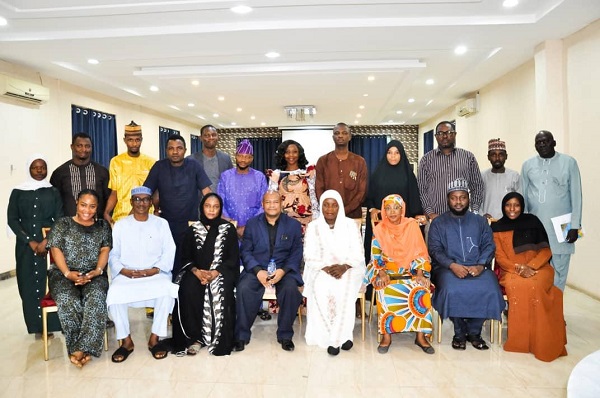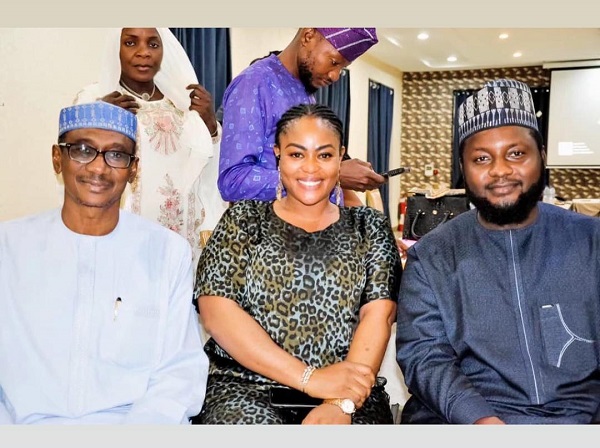
A coalition of civil society organisations (CSOs) progress is required in the move for Universal Health Coverage (UHC) to keep adolescents healthy, given that they represent a critical window of opportunity in the country.
Speaking on behalf of the CSOs at a two-day strategic retreat organised by the African Health Budget Network (AHBN) yesterday (September 11, 2022) in Abuja, the chairman, National Advocates for Health Muhammad Usman said investment in adolescents delivers “multiple dividends” – improving health, enhancing it throughout the life course and contributing to the health of future generations.
Science Nigeria reports that the retreat reviewed the country’s Reproductive, Maternal, Newborn, Child, Adolescent Health and Nutrition- (RMNCAH+N) Recovery Plan Scorecard and validated the Family Planning (FP) 2030 Accountability Motion Tracker Template.
“Healthy adolescents also fuel economic growth by contributing to increased productivity, reduced health expenditure and the interruption of intergenerational transmission of poor health, poverty and discrimination.
“For every naira invested in adolescent health, there is an estimated 10-fold health, social and economic return,” he said.
Earlier, the coordinator, AHBN, Dr. Aminu Magashi said national health strategies and investment plans for UHC must include adolescents, with emphasis on the most vulnerable and marginalised adolescents and their families to ensure equity.
Magashi said that investing in vertical or single-issue programmes is rarely efficient.
“Programmes should be designed to address multiple risk factors and vulnerabilities and all adolescents should be covered by mandatory, prepaid, pooled funding with user fees reduced or eliminated,” he said.
He said that adolescents themselves should be empowered to initiate action and influence decisions that affect their health and development through mechanisms that allow for meaningful participation.
“This should be bolstered with disaggregated and regular data to know the magnitude of disease burden, health needs and barriers to services for this age group,” he stressed.
The coordinator said that the RMNCAEH+N recovery plan during the COVID-19 accountability scorecard was developed through rigorous analysis of the 2022 Federal Government-approved budget, review and validation meetings and independent monitoring of the activities of the RMNCAEH+N National Multi-Stakeholder Partnership Coordination platform.

He said that the scorecard which has three categories was to serve as an evidence tool to be used by all stakeholders including CSOs, media, advocates, young people and development partners
This he said was to strategically influence actions that would promote performance, transparency and accountability in the implementation of the country’s RMNCAEH+N continuity response plan (2020-2022) during COVID-19.
Magashi said that the scorecard reported three categories including Governance and Leadership, Budgetary Allocation and Disbursement; Accountability and Transparency.
He said that investments in family planning are an investment in saving the lives of women and children and leading to prosperity for all.
“Family planning, therefore, is critical to achieving sustainable development goals which are aimed at ending poverty and improving wellness and health. it is also key to achieving ending hunger as well as promoting gender equality.
“That’s why a country as populous as Nigeria needs to promptly release the budget for the procurement of family planning (FP) commodities.”
Meanwhile, the chairperson, Africa Health Budget Network Meaningful Adolescent and Youth Engagement Working Group, Mr. Olympus Adebanjo, said that the inadequate allocation of resources is a major challenge for implementing the good plan Nigeria has for family planning.
Adebanjo said that hence, expanding the narrative of family planning from being majorly a health issue to a development issue would provide the opportunity to prioritise family planning as human capital and socio-economic development issue and for the achievement of the sustainable development goals (SDGs).
He stressed that the nation as a pre-transition country has a high fertility rate of 5.2 per woman and a very youthful population bulge.
He noted that the current scenario and resulting challenges that a country like Nigeria is facing would be effectively addressed if FP is strengthened and prioritised as a national development agenda, with strong leadership commitment and funding to be universally accessible to all.

